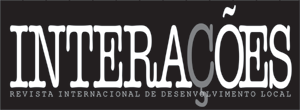Abstract
This research addresses the issue of governance in rural poverty reduction projects, especially the Pará Rural program, arising from a loan from the World Bank to the Government of the State of Pará. The study aimed to verify the epistemological aspects involved in the design of the governance structure to understand which factors condition it and how to identify them. To this end, a theoretical review was carried out in the area of governance and, then, a practical application of the Pará Poverty Reduction and Natural Resources Management Program (Pará Rural) was made. It is an applied research, with exploratory objectives and a qualitative approach, where the technical procedures used for data collection were documental research and field survey. It was concluded that the governance structure identified in the research is the result of its form, based on the elements that compose it, being the result of interaction with the environment and institutions and of its adaptation to local specificities. The research showed that an epistemological understanding of governance is essential, emphasizing the way in which knowledge is constructed, in view of its multiplicity of actors and, consequently, of diverse interests. In Pará Rural, collective action and the strategy adopted by the community were identified as determinants of the governance structure.
Keywords
governance structure; governance; Pará; Rural

 Thumbnail
Thumbnail
 Fonte: Elaborado pelas autoras.
Fonte: Elaborado pelas autoras.